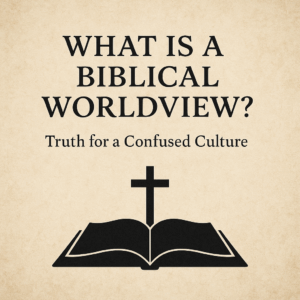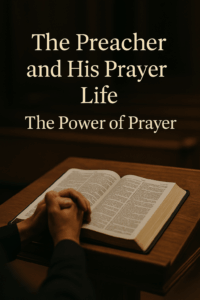⏱️ Estimated Reading Time: 7 min read
Although standing alone chronologically and historically, Job is considered one of the most important books of the Old Testament because of the importance of its subject: our relationship to and with God.
Job lost his wealth, his family, and his health. If you were to look at him, he had sores from the sole of his foot to the crown of his head (Job 2:7), the puss of which he had to scrape off his body. He sat among ashes, probably to dry up the sweating of his boils; so he was caked with white dust from head to toe. When his friends came to visit him, we are told that “they did not recognize him. And they raised their voices and wept, and they tore their robes and sprinkled dust on their heads toward heaven. And they sat with him on the ground seven days and seven nights, and no one spoke a word to him, for they saw that his suffering was very great” (Job 2:12-13). Considering the fact that later they would not stop talking, the sight of Job must have been quite impressive to shut them up for seven days and nights!
When Job finally breaks the silence, he does so by regretting the day he was born. Most of the remaining 30-plus chapters are their conversations and speculations about God. While much of the speculation of his friends turns out to be incorrect, we nonetheless get a very clear sight of the New Testament Savior Jesus in this ancient Old Testament book.
Job’s Savior
Bible students through the centuries have observed the similarities between Job and Jesus. Job’s afflictions came because of his obedience to God, and were as painful as anyone’s in the Bible besides Jesus; he seems to be utterly forsaken by God while afflicted by men and Satan, and his life ends in blessing for himself and the glory of God. Certainly we see Christ sweetly reflected in Job’s gracious response to his trials.
Over and over we see Job’s total willingness to throw himself entirely into the wise and good hands of God: “Shall we receive good from God, and shall we not receive evil?” (Job 2:10). “Though he slay me, I will hope in him” (Job 13:15). One cannot help but hear the echoes of Jesus’ perfect submission in Job’s words. Jesus—who cried out from his heart, “Not my will, but yours, be done” (Luke 22:42), and then followed through with this resolute commitment: “Shall I not drink the cup that the Father has given me?” (John 18:11).
Not only did Job express insatiable desire to glorify God in his affliction, he also displayed an unshakable resolution to obey God, even in the midst of his very real pain:
But he knows the way that I take; when he has tried me, I shall come out as gold. My foot has held fast to his steps; I have kept his way and have not turned aside. I have not departed from the commandment of his lips; I have treasured the words of his mouth more than my portion of food. (Job 23:10-12).
Likewise, Jesus proclaimed, “My food is to do the will of him who sent me and to accomplish his work” (John 4:34); “I do as the Father has commanded me, so that the world may know that I love the Father” (John 14:31); and “I have kept my Father’s commandments and abide in his love” (John 15:10).
But there are also crucial differences, highlighted at the end of the book of Job. Unlike Job, Jesus knew why he suffered, and Jesus suffered voluntarily—for the glory of God and for the salvation of each of his people!
In fact, we might say that when Jehovah questions Job at the end of his trial, we observe Jesus proving to Job his need of a Savior:
God: “Where were you when I laid the foundation of the earth?” (Job 38:4).
Job’s answer: “I wasn’t there, and didn’t even exist yet.” Jesus’ answer: “I was there.”
God: “Who determined its measurements” (Job 38:5).
Jesus’ answer: “Me!” Job’s answer: “Definitely not me.”
God: “Job 38:6 On what were its bases sunk, or who laid its cornerstone” (Job 38:6).
Job’s answer, “I’m done. I have nothing to say.” Jesus’ answer: “I laid the cornerstone, and I am the foundation on which it is laid.”
God: “Have you commanded the morning since your days began, and caused the dawn to know its place?” (Job 38:12).
Jesus’ answer: “Yes, by me all things exist!”
God: “Have the gates of death been revealed to you?” (Job 38:17).
Jesus: “They will be!”
God: “…or have you seen the gates of deep darkness?”
Jesus: “I close and open them at my will.”
God: “You know, for you were born then, and the number of your days is great!” (Job 38:21).
Jesus: “Yes, I am from everlasting to everlasting — the same yesterday, today, forever.”
With this impressive foundation laid, then, in chapter 40 Jehovah moves from creation to salvation: Job 40:8 continues, “Will you even put me in the wrong?” (Jesus will affirm and fulfill his Father’s judgment); “Will you condemn me that you may be in the right?” (To which Jesus replies, “I will be condemned, to display God’s righteousness”).
God: “Have you an arm like God, and can you thunder with a voice like his?” (Job 40:9).
Jesus: “Yes I do, but I will humble myself to my Father and willingly surrender my glory.”
God: “Then will I also acknowledge to you that your own right hand can save you” (Job 40:14). Job, you cannot save yourself; you need Someone who can answer these questions positively, authoritatively, satisfactorily.
Ultimately, Job is brought to realize this startling truth: although the trials were not coming on him because of his sin, he did deserve what was happening! There is absolutely no hint of an apology on God’s part, for all of Job’s terrible pain. Job’s is the only repentance recorded between him and God! In fact, Job was finally brought to this confession: “I despise myself, and repent in dust and ashes” (Job 42:6).
But Jesus, in effect, said to Job: “You deserve what you are suffering, and worse, forever. But I will take your losses, your festering sores—even God’s forsaking you—upon myself, so that you can go free now, and be freed forever.”
Job’s Redeemer
By faith, Job was able to “see Jesus’ day” just as Abraham did after him. And by faith Job could truthfully say, “I know my Redeemer.” And not only that but Job also proclaimed, “I know that my Redeemer lives” ((Job 19:25). I can’t deliver myself, as I’ve already discovered in the midst of these overwhelming losses and pains and afflictions. But my Redeemer can and will deliver me. No matter how bad my circumstances may be—and even if my sickness leads to my death—he lives now and will continue, will stand on the last day that this earth will ever see.
“He shall stand!” (Job 19:25). An implicit claim to victory. And Job is confident that “In my flesh, I shall see God” (Job 19:26). Because he lives, because he will stand, I will see God in my flesh, with my own eyes! My Redeemer stands (a man), yet my eyes will see none other than God!
Here is a clear statement of life after death, of the resurrection of the personal body, of the divinely human Redeemer to come, and that he will not only deliver me from current pains but even death!
Have you, by faith, been blessed to know your Redeemer, that he lives, that he will stand again on the earth, and that he will finally deliver you even after worms have eaten your body in the grave? Nothing else, and no one else can deliver you now from the trials you are facing, from the death that comes to every human, or from the judgment that will come at that last day. But Job’s sovereign Savior and Redeemer is well able to give you the victory.




